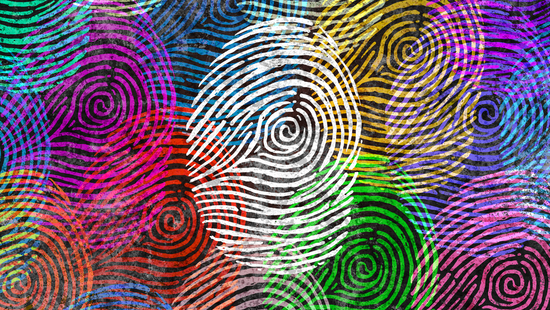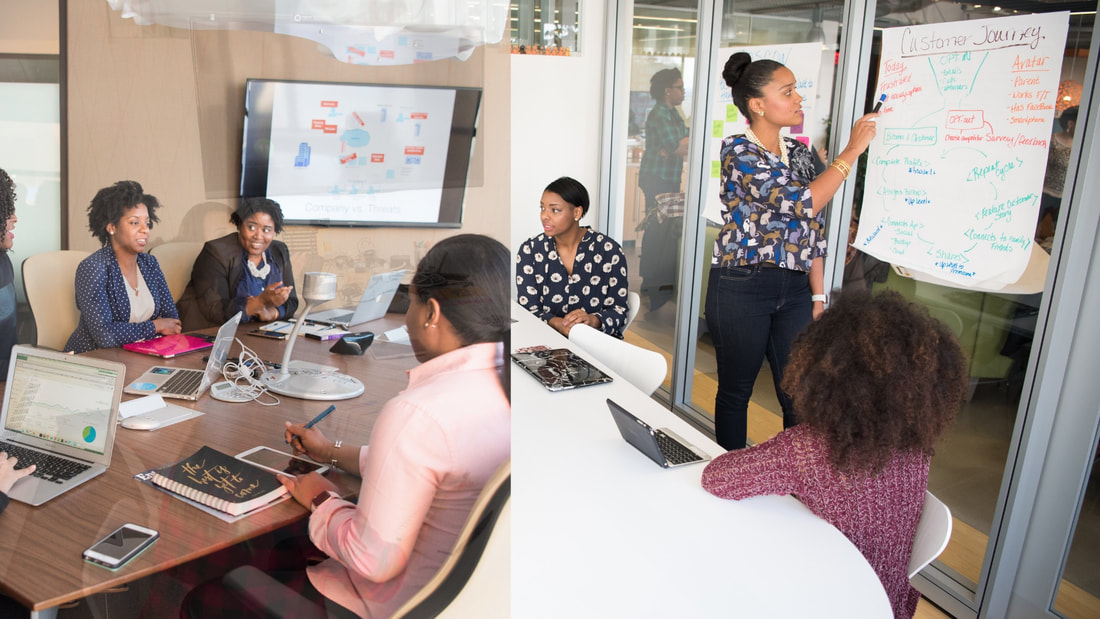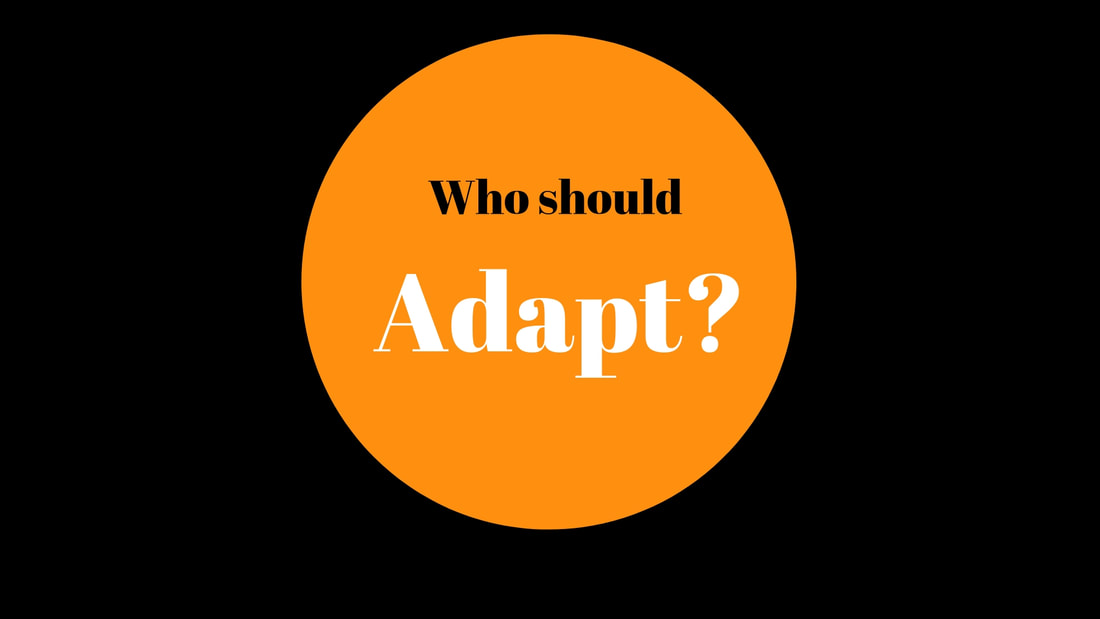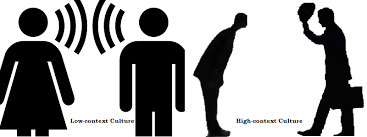Is cultural code switching good or bad
Cultural code switching is only good when it comes from a place of self acceptance and empathy to connect with people from different cultural or historical backgrounds. It should be backed with cultural intelligence skills (the ability to effectively understand, adapt and relate well with people from various cultures without compromising your cultural values and identity). Cultural code-switching is bad and detrimental if it is driven by the feeling of self unworthy and undervaluing of self culture and identity. Negative effects of code switching in multicultural organisations Ideally in an inclusive working environment people should remain true to their cultural and physical identities which gives the organisation the competitive advantage to have diverse perspectives and point of views. This means that coworkers should only develop their cultural intelligence to understand where the other person is come from and use their perspectives to enlight their blind spots. Unfortunately most organisations are still struggling to comply with appearance diversity. For this kinds of organisations, all they want is to look diverse from the outside perspectives but remain homogeneous as they integrate their new hires in the dominant culture and without knowing pushing people to loose their important parts of their identities.They are not far from being clients for the fake rentaminority.com company that would help them fix the diversity issue quickly. Unnecessary cultural code-switching undermines the substance of equity and inclusion which promote innovations and creativity in diverse teams. What you should consider before code-switching According to Endiya Griffin & Tatiana Howell Discover the powerful CPU of code-switching ted talk you should ask yourself these three questions before you code-switch.
0 Comments
Here are some of the proverbs that stresses the Rwandan cultural value of inhibiting emotions and feelings
Impact of hiding some part of yourself To better understand this let's use this metaphor of a left handed person forced to write with their right hand because everyone else writes with right hand. It does not only feel uncomfortable but it is also energy draining and it affects the speed of your work and the quality of your product. In the same way, concealing your emotions and some traits that make you unique can lead to perpetual stress, anxiety and burnout. Strategies to bring your whole self to work place Work in a trustful environment At the foundation of all relationships is trust. Only within a trusted environment will someone from a reserved culture be able to share their feelings and emotions and therefore bring their whole self at work. Yes, creating a sense of trust within a team begins with the senior leaders, but to be fully sustainable it needs to be lived by every one. So be the champion driving team trust. Know your weakness and accept yourself It is equally important to know your weaknesses as much as knowing your strengths. Knowing your weakness will not only help you work on them and potential improve them but also save you time and energy to try cover them. Everyone is imperfect, so there is no need stigmatize your weak traits. Sharing your weak treats increase your self confidence and help you bring your whole identity at work. Embrace Diversity and find new places to network Engaging in conversation with people from different cultures, age, race, historic background, sex orientation puts you in a position for growth. According to Anka Wittenberg Senior Vice President and Chief Diversity and Inclusion Officer at SAP while interacting with your network you should look for, accept and appreciate differences. Friction leads to heat, and our heat makes the atoms move faster! Take Action If you are manager leading a team in Rwanda and would like to help your team members fully bring their identities at work place, I would be very happy to have a workshop with your team and embark on the journey of developing an inclusive team that embraces and leverage differences to achieve your desired goals. Justin Ngoga Founder and Executive Director, Impact Route
We have solutions for cultural diversity and inclusion here in RwandaRwanda cultural awareness
In response to cross cultural challenges faced by internationals visiting, living and working in Rwanda , Impact Route has started the first cultural awareness training in Rwanda. This seeks to help internationals in Rwanda appreciate Rwandan cultural values, perceptions and mannerisms and in turn reduce cultural shock severity while enabling them to more effectively integrate in Rwandan culture. Cultural awareness matters because our cultural values enormously influence the way we interact with people, how we build relationships and the way we approach work. cultural unpreparedness leads to misunderstand, judgment, distrust and ultimately poor relationships. Cultural intelligence training In today's global economy, the ability to understand, relate well and effectively communicate with customers, partners, coworkers, reports, and supervisors from diverse cultures is one of the key competencies that people and organisations need to succeed in the growing intercultural business markets. This course is designed to develop participants intercultural skills and give them the knowledge and skills needed to meet the global challenges today’s interconnected world presents. It opens participants minds to see and appreciate the value of cultural differences and strategies to leverage our individual differences. Would you want to have run a cultural diversity and incluision training with your team? Please get in touch to schedule a virtual training now or plan on a face to face training when meetings and gatherings are allowed in Rwanda. Reach out to us at [email protected] or call us at +250 788810267
I am not here trying to judge which culture does the right thing between respecting and keeping time and acting in the moment and make the most out of the present. My intention is to help you understand what the other person values which in turn informs the way they approach time in their culture. Now, you might be asking yourself what is the most beneficial way? I am sorry I do not have an answer for you, it all depends on where you are, who are you dealing with and what you want to achieve. To finish this blog, I only have one advice for to deal with time across cultures. Be slow to judge but seek to understand!
 It is widely accepted, I also agree that the success of any organisation highly depends on their teams. But with globalization organisations are finding it hard to build strong and performing teams due to cultural differences dynamics. This is where cultural intelligence comes in. Cultural intelligence helps the team understand how their cultural values shape the ways they approach work, relationships and how they interact with people and nature. A cultural intelligent team do not see cultural differences as threat but as a competitive advantage that helps the team to see and approach work with diverse perspectives which promotes creativity and innovation. You need cultural Intelligence training than anything today if you intend to develop a unified and performing team that effectively deals with clients or partners from diverse cultural backgrounds. Of course it is not something that brings cash tomorrow if you are operating on a short term and emergency plan but the cultural intelligence ROI is very high for people who proactively plan their success. I visited a job search website in Rwanda today and what I found was nothing else than a confirmation that cultural intelligence training is not a nice thing to have but a must have skill to compete and succeed at the job market in Rwanda. As I write this blog, on that website there are more than 80 job posts of which approximately 95% are in international organisations with multicultural staff and mostly led by internationals. This comes as a result of globalization which is a great thing.
Regrettably, most these organisations ignore or do not understand how cultural differences could be a big challenge in detecting and hiring talents across cultures. With this, the responsibility goes to the job seeker to adapt to the hiring manager's culture to succeed the job interview and secure a job. Unfortunately cultural agility skills are not developed overnight, it takes time. To illustrates why I think students should have a cultural intelligence class , here is one example of conflicting cultural differences. In communication, most of the western cultures believe in effective communication people should be direct on point, use relatively loud voice and do eye contact. On the other side Rwandans use indirect communication, relatively low voice in speaking and barely do eye contact. Now you can imagine what happens to a Rwandan fresh graduate interviewing for a position in an international organisation using Rwanda cultural communication style. I am not judging here, I believe both of these communication styles are good but once they come together with no cultural preparedness they conflict and people will fail interviews not because they lack required skills but rather because the interviewee and the interviewer have two different ways of communication. Looking at the rate Rwanda is growing and attracting global organisations, I think education institutions should start preparing students to think and act beyond Rwandan culture. This does not mean, Rwandans should reject their culture but develop intercultural skills that enable them to work and thrive in diverse cultural situations. Impact Route is ready to partner with Schools and Universities in the journey of developing young Rwandans intercultural skills. Contact us for more details.
So, who should leave their normal ways of doing things and adapt to a different culture? My answer is it depends. I believe people should not adapt just to make the other person life easy. Before adapting think about these questions. What is it that you want to achieve? Is adapting the best way of doing it? What are you sacrificing as you adapt to the other culture? Are you compromising your core values? Are you able to adapt? What cultural value is beneficial for you and the other person in that moment?
Who should adapt to the other culture in a multicultural organisation? The biggest mistake that a multicultural organisation would do is forcing people to adapt to one specific culture. This is very dangerous because we are all attached to our way of doing things ( culture) because it is what is familiar to us and we value it. This why it is very important to create organisational culture which everyone believes advances the organisation strategies and is distinct from group cultures. That way people do not feel they are loosing their cultures but they feel they are adapting to the culture(values) that drives business strategies. Key points:
By: Justin Ngoga
Indirect Communication
Subtle Communication
Not expressive
Culture shock is inevitable and everyone in a new culture goes through it. The only difference is the amount of the shock people have and this depends on many factors (How much apart is the host culture from your own, system support, connection to your home, previous cultural experiences etc..). Listening to your feelings and be of aware of your culture shock is fundamental in managing your culture shock. Here are some of the most common signs of culture shock and the strategies to overcome them. 1. Extreme homesickness ( You miss your family, your do, your bed, your food, your car and everything in your hometown.) For the most part people miss of these things back home because what they have is very different and sometimes hard to deal with. This happens at least after the honey moon stage which the first two weeks in the new culture where everything looks new, beautiful and fun. Strategies to deal with extreme homesickness
2. Disorientation and isolation: Language barriers and other cultural practices and mannerisms sometimes are overwhelming which will make you want to go away from the host culture and lock yourself in the room or spend most of your time in coffee shops and go home very late. This happens a lot with people doing long home stays experience. Strategies to deal with Isolation
3. Excessive critical reactions to host culture/stereotyping: In the first two weeks in the new culture people talk about the beauty and how everything looks different and fun. When the honey moon stage ends things cease being fun but rather annoying and people start complaining. When this continues it leads to being hostile to the new culture and only see the negatives. Strategies to deal with cultural related irritation
4. Bad -Tempered: Gradual cultural shock experience develops unconscious sadness which might come out as inappropriate anger and hostility when talking to people. This make sense that people in this mood will have poor relationships and ultimately this could lead to complete inability to function in the host culture. Strategies to deal with cultural related irritation
1. Stop!Whenever you are going to meet someone from a different culture it is advisable you take sometime to dig and find out possible cultural differences you might have and plan the conversation accordingly. For example if you come from a non pet culture and you are meeting someone from a pet culture you should set a reminder to personalize the pets when they come with him/she ( it). Taking time to learn about the other culture and strategize will significantly reduce your culture shock and ultimately improve your relationships. 2. Avoid Quick JudgmentWe all interpret everything using our cultural lens but unfortunately sometimes we get it wrong which is very normal. To avoid quick judgment you should always try and assume the best. For example if you come from West and someone from Africa tells you you are fat, though it might hurt you just assume that maybe fat is good in their culture. Since assuming helps for a short time and sometime might not be right, you should always ask to make you sure you understand what the other person means. 3. Find one thing about their culture and appreciate itI believe it and it is true every culture has got beautiful things but you should be willing to find them out. Since we are all attached to our cultures everyone will appreciate a good and genuine word about their culture. Therefore, before you meet the person from a different culture try and find at least one thing that you genuinely believe is beautiful and share it during the conversation. This will break the strangeness and draw the person closer. 4. Do not try hardDo not try to loose all of you to adapt to the new culture because people will easily see that you are not the real you. Always remember your core values and maintain them because they make you who you are. However, you should also know your flexible area that you can easily change to adapt to the new culture and relate with people in the culture. 5. Be curiousWe all want to hang around with people who are more like us. But unfortunately we do not learn a lot from people whom we share a lot of things. Curious people are willing to leave their comfort zones and dive into new culture and learn and share the differences. If you are new in a culture, I recommend you reduce the time you spend in the expat community and schedule meetings with local people, this will not only increase your cultural knowledge but also will significantly increase your community trust.
With visit Rwanda Campaign, Rwanda will be receiving a lot more tourists from diverse cultural backgrounds which makes cultural intelligence training not only important but also imperative to the hospitality and tourism businesses to effectively relate and take care of multicultural customers. Cultural intelligence training will help hospitality and tourism staff to understand who they are in relation to the rest of the World, how their cultural values and behavior are perceived, interpreted by people from other cultures and the effects some of their cultural behaviors could have on the customers from different cultural backgrounds.
Impact Route mission is to bridge cultural gaps and enable people to leverage their full potential in multicultural environments. Get in touch to schedule a training! [email protected] Tel: +250 788810267  Every organization is looking for people with skills and right attitude and most of them when they put job advert out generally they probably wanted that employee a couple of months ago. This mean that they have less time to train people, they need people who are ready to start right away. Though, you could blame them but at the end of the day it goes back to the job seekers to make sure they always up skilled. It is very important for professionals to stay on top about innovations in their areas of expertise but unfortunately, being skilled, talented informed does not always lead to succeed. Sometimes your technical skills could not be seen because of cultural differences. In the following paragraphs we will explore instances where cultural differences could be curtains that hide potential candidate's skills. Communication: In my culture, which is an indirect culture, the best communicator is the person with the ability to lay a good foundation of the message and does not fall short of words and therefore rush to the key message. We start with background information and slowly narrow down to the point. This is what happens when the listener comes from a direct culture. " Wait, wait, wait, What are you trying to say? I am confused. Please get to the point". Remember the patience during interviews is always small, there is another candidate coming after and there is no time to try to understand. Therefore the easiest way to deal with that is to disqualify the candidate because of poor communication skills. But really, it is lack of communication skills? The problem here is that what one culture calls good communication skills the other culture calls poor communication skills. Being proactive. In high power distance cultures, bureaucracy plays a big role and shapes how people think and act. In this cultures, decisions are made from the top and the bottom execute. It very challenging when a person from high power distance is working with a supervisor from low power distance when working relationship is more flat. The supervisor will expect the report to be proactive and come to them with ideas of things to be done which to a person from a high power distance is a big problem because in their cultures supervisors decides and if you come up with ideas and be proactive it could come across as disrespectful. Now going in the interview scenario, if the hiring manager comes from low power distance and is looing for proactive candidates they will need to dig deep to detect the talent. To make it clear, people from high power distance are proactive but how they act would not necessary look proactive in the eyes of the person from low power distance culture. Eye contact. In Rwanda we generally do not do eye contact. As kids we grew up being told to not fix older people and we did that to respect people. But in other cultures this could be interpreted as lack of confidence or being guilty of something. If the candidate is interviewing for sales person and does not do eye contact and the hiring manager is not aware of that cultural difference, It would difficult for the person to get the job because in the eyes of the hiring manager a sales person needs to be confident, assertive and persuasive and the candidate does exhibit the qualities. To keep this post short, I stop with only these examples but there are so many cultural differences examples that shows how cultural differences could be curtains that hide people's skills and potentials. Now, it goes to the individuals to always do a background check of who will be in the interviews and their cultural values orientations. Hiring managers, it is very important that you go beyond cultural differences and be able to detect talent skills. But how do you do it? That where Cultural Intelligence training comes in. I am counting down only three days until I get in the plane and five days until the CQ Certification training happens. This is a big milestone for me and Impact Route. I have had this dreams for more than two years and now it is going to be a reality.
Of course, I am not certified yet but I can not hold back my excitement. Not only that this will put me in a global network of more than 400 CQ certified professionals but also it is a new chapter for Impact Route. Who would not trust a company with staff who attended the same training Harvard University professors attended? With only less than two years we are connected with almost every successful CQ organizations and professionals . For Rwanda and corporates in Rwanda, the job is made easier, now you do not need to fly your staff or fly international trainers and pay unnecessary fortune. Soon we will start offering World class Cultural Competence training at a reasonably affordable price. Stay tuned, soon there will be another blog post with details and future plans of CQ training in Rwanda. FYI Cultural Intelligence Center is the organization that offers the certification
To the kids, someone is only different when they can not understand him/her and the person can not understand them but the moment they notice that the person can actually speak their language then the barrier/ curtain is removed and they start seeing the person as member of the community.
Learning a local language is not only important in being able to get what you want ( buying stuff, getting around etc...) but it is a great tool to integrate into and identify with hosting community. That is why we have basic Kinyarwanda classes in our cultural orientation packages. 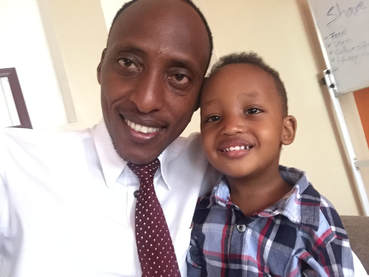 You Look Smart : A complement Interpreted as Insult This is me and my son after church and WE LOOK SMART right? In Rwanda I would say a big yes, I am in my new white shirt and nice white spotted red tie. My handsome son has a new hair cut and he is in his brand new shirt. For someone from the US ( may be my friend Luke whom I have worked with for more than three years and knows me well) would definitely say no. We do not look smart. What is happening here? One English word interpreted differently. Two different cultures uses one word to mean two different things. In Rwanda if someone says you look smart they mean you dressed up ( They like your clothing ) which in American English this could mean you do not look intelligent. I Like your Shirt: You can Have It In multiple occasions I have witnessed English speaking people telling Rwandans they like their clothing and generous Rwandans genuinely respond " Ooh you can have it, I have another one." They do it because they think you want it. For some Rwandans when you say you like something they have, it is translated you want it so they will give it to you. This causes embarrassment on both sides, the person who wanted to give a compliment feels guilty after knowing what it actually means and the other person who offered their clothing instead of accepting the complement does not escape that embarrassment. Take home: Speaking one language does not break culture barriers. Two weeks ago I was talking to an acquaintance that I had made in a conference and I really learnt a lot from the conversation. But in the middle of the conversation after I have told him that I do cultural orientation in Rwanda, he quickly asked " How can you change Rwandans and get them buy easily the products because I have good products but they do not get to see that my products are better than what they are buying now." At that moment It was very easy to see why he was not able to convince people to buy his product. The big problem that friend has is the ability to understand his customers and communicate across culture. Instead of him trying to understand the culture and adapt to it, his big concern is how can I change Rwandan culture and have them buy my products.
This actually reminded me of the big difference between emotional intelligence and cultural intelligence. As Julia Middleton says in a TEDx video, emotional intelligence is not good enough to make you good with people because with only emotional intelligence you will be good with people who are like you ( people with whom you share the same culture). And for those who have a different culture you will always want them to be like you for you to be able to relate with them. It is normal that people see themselves almost every time on the right side and the other person on the wrong side. But I believe that is only for normal/ ordinary people. Extraordinary people will always want to understand the other person even if it might put them in a humble position. But in the end they will be successful. Recommendation. Whenever you encounter a different culture avoid quick judgement of the culture because if you do so you are closing your doors. Always be tolerant and seek understanding. Justin Ngoga Cross Culture Traininer  I love seeing two different cultures coming together with humility and desire to learn from each other. Every time I have encountered a different culture, it has been an amazing time to not only learn about that different culture but a wonderful moment to understand my own culture. Very recently I was teaching a Kinyarwanda lesson to an American friend who had lived in Rwanda for more than five years and come back for a short visit. In the middle of the class he stopped me and asked " Hey Justin So ikibazo could be either a problem or a question?" and I said yes. But I was also surprised that I had not thought about that before. It was not until he did not understand my language and asked that I actually realized that a question and a problem had one word in my language. Also right away I learnt that answer and solution are one word in Kinyarwanda. Ikibazo= problem/ question Igisubizo= answer/ solution I also understood why very often Rwandans with intermediate English level confuse problem and question. In Rwandan mind a problem and a question are wrapped into one word IKIBAZO, therefore it takes effort to separate them in English. Take home: A different culture is the mirror which show you your own culture. |


